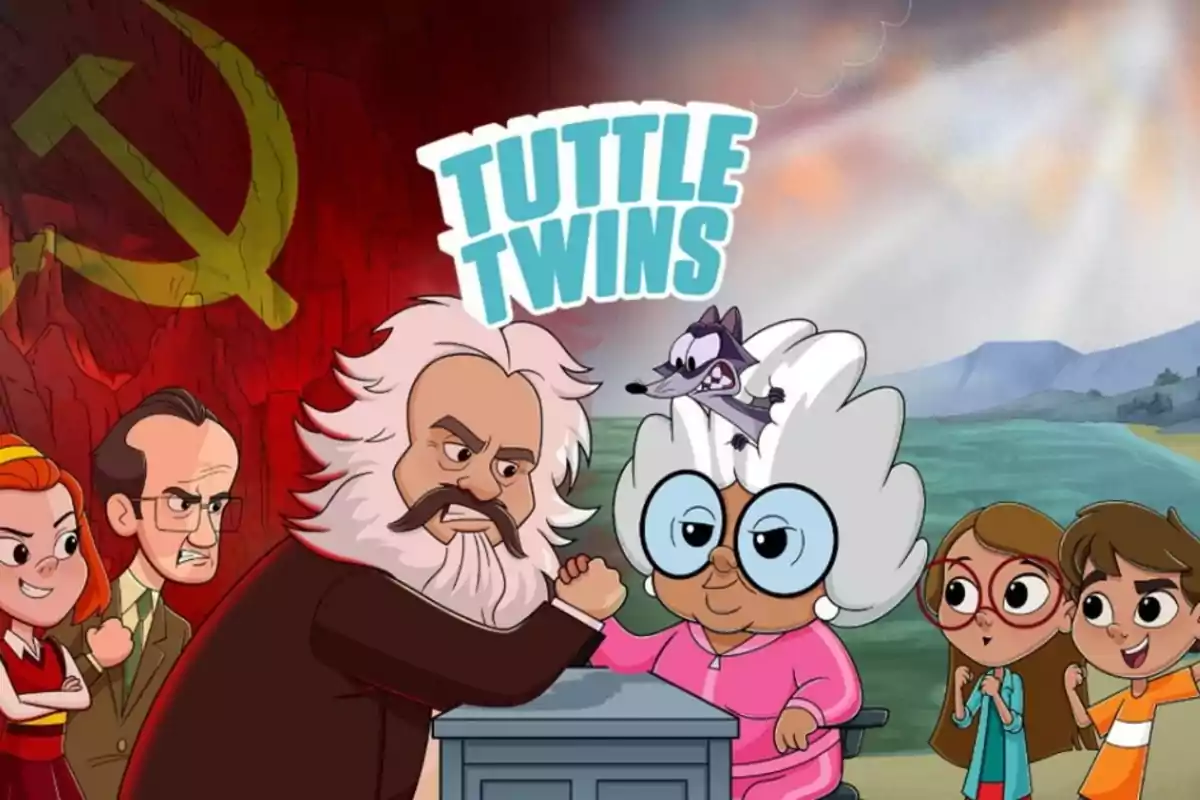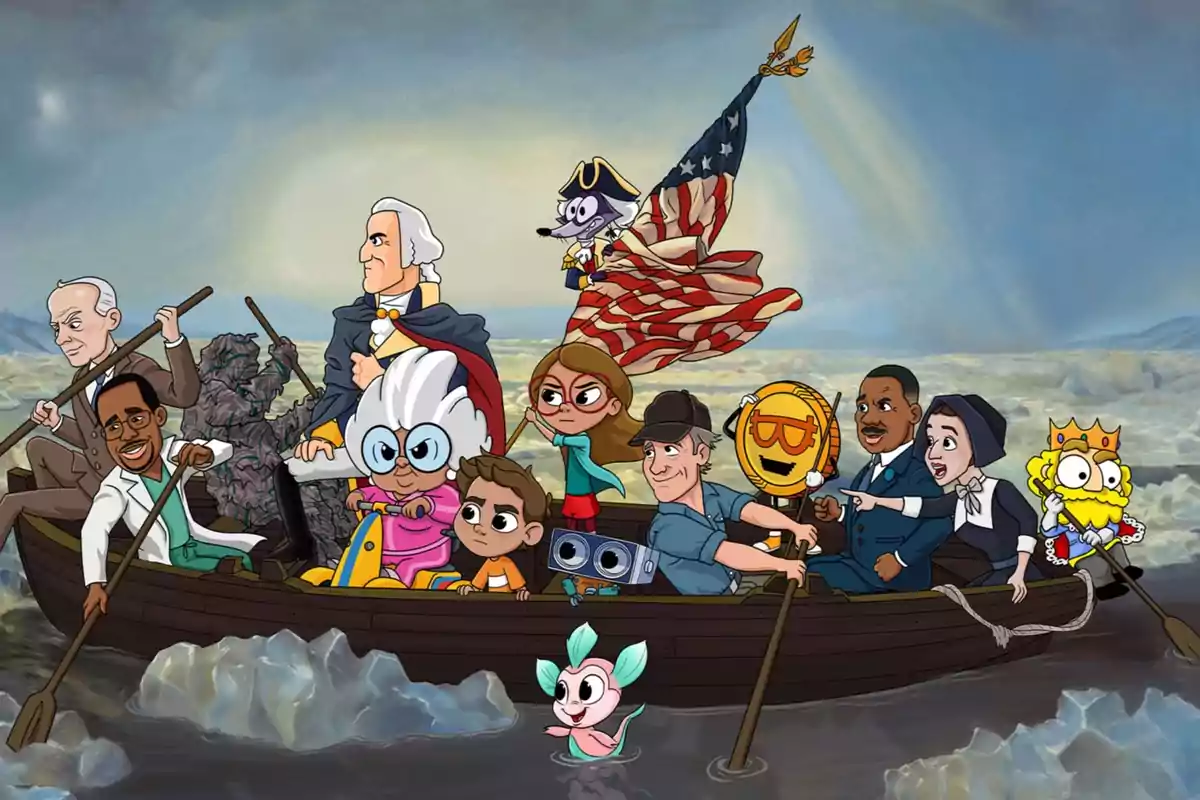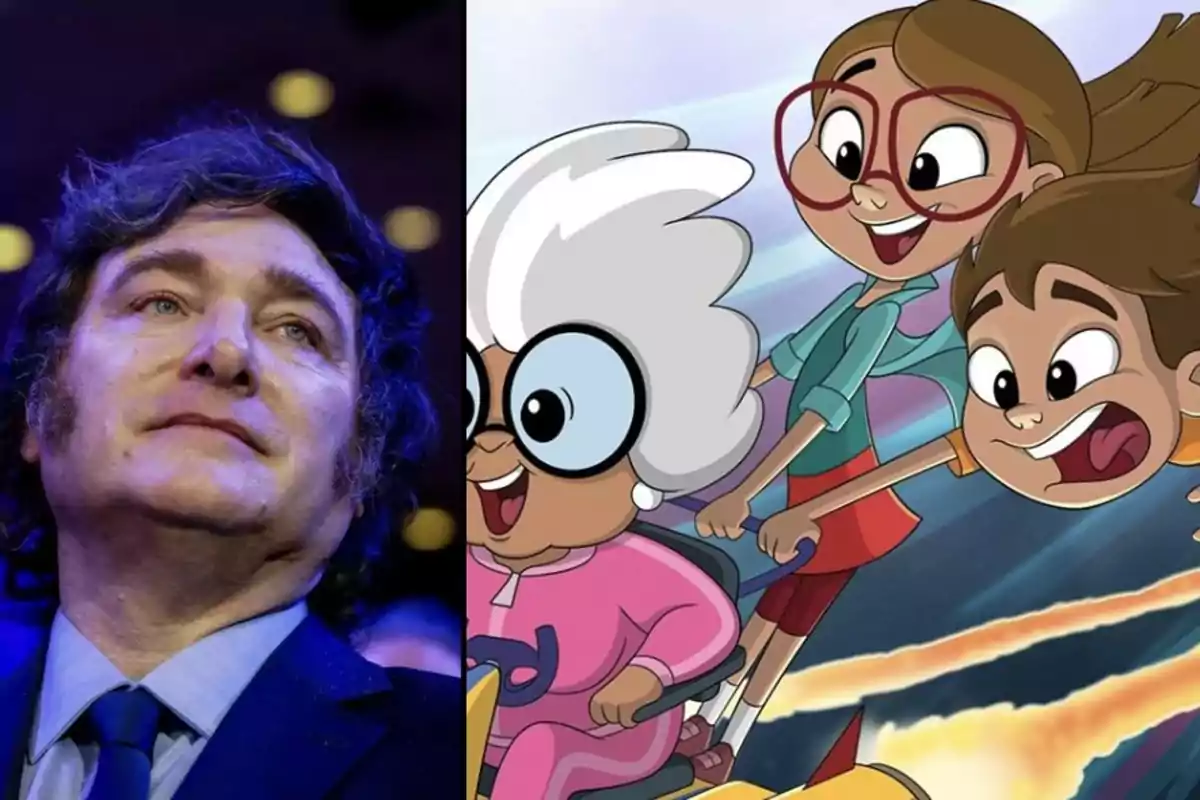
Tuttle Twins: the children's space to reflect on freedom and economics
The series that invites younger audiences to question statism and value individual freedom
In times when information flows constantly and children are exposed to multiple sources, the discussion about what content they consume and how different perspectives of the world are presented to them is more relevant than ever. The animated series "Tuttle Twins" has entered the public conversation, bringing with it a valuable opportunity to reflect on educational freedom and the importance of allowing our children to explore diverse perspectives.
The series, based on the popular books by Connor Boyack, proposes a journey through economic and civic concepts from a perspective that prioritizes individual freedom, private property, and personal responsibility. It is natural for a proposal with such a clear vision to generate debate, especially in a context where ideas about the role of the State and the individual are in constant redefinition.

Beyond the Controversy: The Value of Exploring Ideas
The main criticism of "Tuttle Twins" usually focuses on its "libertarian" or "right-wing" approach. However, if we look beyond the labels, we can find an essential value: exposing children to ideas that are not always dominant in the traditional school curriculum.
Concepts such as the value of work, the consequences of inflation, the importance of individual initiative, or the complexity of the role of government in the economy are presented in an accessible way through stories and characters. It is true that they do so from a particular lens, but isn't the purpose of a comprehensive education to offer different points of view so that young people can develop their own critical thinking?
Theory in the Service of Understanding: Concrete Examples
Far from being mere "opinions," many of the arguments in "Tuttle Twins" are based on economic and philosophical principles that have been studied and debated for centuries.
● When the characters travel to places affected by centralized economic systems, the series seeks to illustrate, in its own way, the lessons about resource scarcity and economic coordination that thinkers such as Friedrich Hayek or Ludwig von Mises explored in depth. The aim is not to demonize an ideology, but to show the complexities of certain models of social organization.
● When discussing the role of government and taxes, "Tuttle Twins" invites reflection on the relationship between the individual and the State, a central topic in political philosophy from John Locke to modern thinkers regarding the limits of power.
● The discussion about fiat money or cryptocurrencies, for example, can be an entry point to understanding the history of money, trust in institutions, and financial innovations, topics that are increasingly relevant in our world.

An Open Dialogue for the Growth of Our Children
True educational freedom lies in the ability of parents, educators, and ultimately, the children themselves, to access a diverse range of knowledge and perspectives. Banning or demonizing content simply because of its ideological orientation limits this freedom and, paradoxically, may generate more curiosity instead of fostering critical analysis.
"Tuttle Twins" can be a starting point for conversations at home. It is an opportunity for parents to explain, complement, or contrast the ideas presented in the series with their own judgment and values. In the end, the goal is to form citizens capable of discerning, analyzing, and drawing their own conclusions, and that can only be achieved by exposing them to a diversity of thought, not by hiding it from them.
Opening the door to these discussions, even when they are uncomfortable, is an essential step toward a more informed society with freer individuals.
More posts: